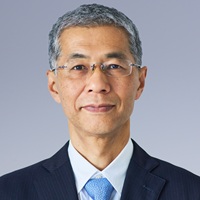
Prof. Tien Fang Fwa, National University of Singapore, Singapore
Dr. T. F. Fwa is currently an emeritus professor in the Department of Civil & Environmental Engineering, National University of Singapore (NUS). He is also a Distinguished Professor at Chang’an University in China, where he serves as the Dean of the School of Future Transportation. He is a Fellow of the Academy of Engineering, Singapore. Dr. Fwa’s main research effort has been focusing on transportation infrastructure performance evaluation and management. He is the Joint Editor-in-Chief of the Journal of Road Engineering. He also serves on the editorial boards of six other leading pavement engineering journals. He has published more than 200 technical papers in leading international journals, and has been invited to lecture in more than 20 countries. Dr. Fwa was the founding President of the Pavement Engineering Society (Singapore), and the Asia Pavement Engineering Society (APES). He was the President of the International Society for Maintenance and Rehabilitation of Transport Infrastructure (iSMARTi) from 2012 to 2016. He founded two international conference series, namely the International Conference on Road and Airfield Pavement Technology (ICPT), and the Asia Pacific Symposium on Transportation and the Environment (APTE).
Keynote Speech: Roles of Transportation Infrastructure in Logistics
Abstract: Transportation infrastructure is the physical backbone of global supply chains, facilitating the movement of raw materials to production sites and the delivery of finished goods to end consumers. Its performance is multifaceted and critically shapes the efficiency, reliability, and overall competitiveness of logistics networks. This presentation will analyze how the performance of key infrastructure components -- terminals, links, and carriers -- directly impacts logistics costs, operational efficiency, and safety. A primary focus will be placed on the transformative role of Artificial Intelligence (AI) in transportation logistics. The significant benefits arising from the deep integration of AI into these systems will be examined. The presentation will be illustrated with case studies showcasing successful AI implementations across various transportation sectors, highlighting practical pathways to enhanced performance.

Prof. Toshiyuki Yamamoto, Nagoya University, Japan
Toshiyuki Yamamoto is Professor of Transportation Planning and Vice Director of Institute of Materials and Systems for Sustainability at Nagoya University, Japan. Prior to Nagoya University, he served as Research Associate at Kyoto University, Japan, where he obtained Doctor of Engineering in 2000. His research interests are next-generation mobility, activity-travel behavior, traffic safety, etc. He is Principal Investigator of the project, Optimization of carbon emission management policy and low-carbon travel induction strategies for demand-responsive transportation systems, bilaterally funded by NSFC and JSPS. He serves as Associate Editor for the journal, Transportation, and International Steering Committee Member for International Conference on Transport Survey Method.